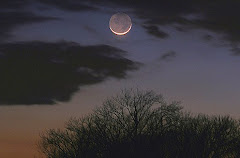 |
| The Zhi-Zhi-An Temple in the WuYi Shan Mountains, China |
Last year, I visited a Daoist monastery to study Qi Gong, Daoist scripts, and meditation. Zhi-Zhi-An monastery in China was originally built over 1,800 years ago, and was just recently restored after being leveled by the Chinese government decades back. Today it houses monks, scholars, and visitors year-round and is considered one of the most significant Daoist holy places in China.
 |
| Every day a ceremony was held at the Zhi-Zhi-An Temple Shrine |
 |
| Perfectly Fengshuid at the base of one of the highest peaks |
“Qi Gong is a discipline which combines patience, skill, and collaboration between the individual’s mind and body,” said Master Wang. Over 14 days of theory and practice, Wang showed us how to explore those elements as healing forces to support the body through meditation training. His aim was to help, “see with the heart in a still condition.”
Throughout this period, I took part in daily meditations, sound toning activities, Qi Gong practices, Dao Yin stretching exercises, a Chi Nei Tsang (specialized form of abdominal massage) training course, Chinese calligraphy lessons with an outstanding local artist, local tea culture, Daoist philosophy lectures, and free time to explore the UNESCO cultural heritage site location.
I received several gifts and expansive moments during my time in China, but the most valuable was being able to find a deeper degree of inner stillness. May be this had something to do with learning meditation from a master with an ancient lineage. When I was training with Wang, I could profoundly sense there was more happening energetically, perhaps on a shamanic level--especially when our eyes would close and we would reach back to a theoretical point in the universe where all potentiality resides--"the Great Non-Ultimate."
I could concentrate more in these sessions and eased through any stiffness or aches that would normally keep me from going deeper. Wang's presence seemed to make it easy to surrender to the practise and open wider to the wisdom of his teachings. And this is something I feel like I can always return to.
 |
| Master Wang (left) and his apprentice |






1 comment:
how can i contact dr. wang?
Post a Comment